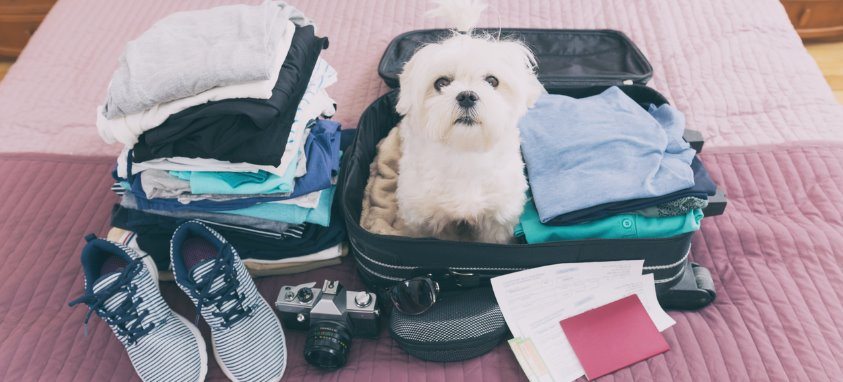More pets than ever are flying from here to there. That is why Delta Air Lines is clarifying the rules for in-flight support animals. Are documents necessary, are there extra forms to fill out, do they need to have obedience training? Here are some of the answers to your questions about protocol for boarding service animals.
The Difference Between Service and Emotional Support Animals
Although the terms are often used interchangeably, service animals are not the same as emotional support animals. The Americans with Disabilities Act (ADA) defines a service animal as one “that has been individually trained to do work or perform tasks for an individual with a disability.” An emotional support animal (ESA), also known as a therapy or comfort animal, does not fall under the ADA’s guidelines; ESAs are untrained and “provide comfort just by being with a person.” While states may have their own laws regarding ESAs, they are not protected by the ADA.
Delta’s Change of Mind
Following problems with pets soiling carpets and biting strangers, Delta has decided to change its protocol regarding support animals beginning March 1. “The rise in serious incidents involving animals in flight leads us to believe that the lack of regulation in both health and training screening for these animals is creating unsafe conditions across U.S. air travel,” said John Laughter, senior vice president of corporate safety, security and compliance for Delta Air Lines.
Owners of ESAs must now sign a statement vouching that their animal has been trained to behave itself and is not a threat to other passengers. However, Delta uses the honor system—no proof is required that a dog attended obedience school. Delta will require proof of health or vaccinations 48 hours in advance. A completed support animal form and letter from a professional is still necessary.
How Other Airlines Handle This
Some airlines have enacted stricter rules regarding ESAs on flights. Most national airlines require no documentation for service animals and recommend “identifiers such as identification cards, presence of harnesses, tags or ‘the credible verbal assurances of a qualified individual with a disability using the animal,’” reads JetBlue Airways’ website. Documentation is only necessary should the credibility of verbal assurance come into question.
However, JetBlue Airways, Alaska Airlines, Virgin America, Spirit Airlines, United Airlines and Hawaiian Airlines require documentation from a mental health professional within a year of the travel date and 48 hours’ notice of all ESAs. Verbal credibility, tags or harnesses are required for service animals. American Airlines’ website provides forms to request accommodation for both service animals and ESAs.
General Guidelines
If you are flying with a support animal, here are a few tips to keep in mind:
- Have a harness, tags and identification ready for your service animal. This will help prevent potential confrontation.
- Be prepared to answer questions regarding the tasks your support animal performs.
- For all ESAs, have your letter of documentation ready.
- Let the attendants at the check-in counter know about your support animal.
- Alert attendants at your gate—they may recommend pre-boarding.




